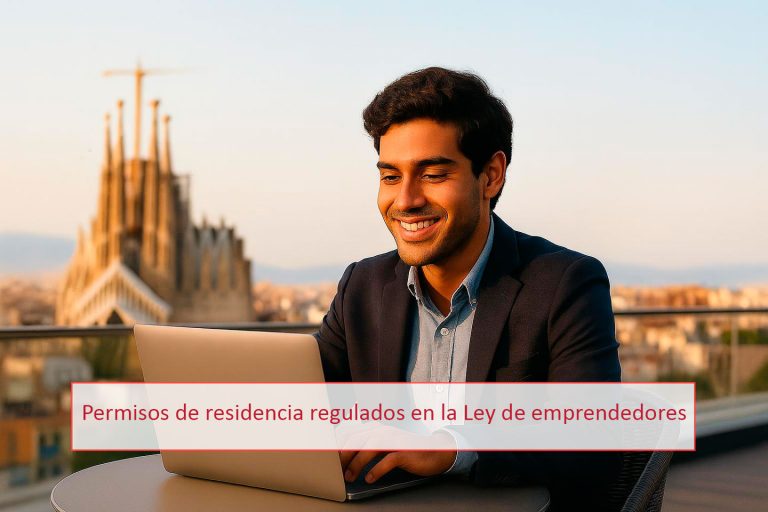
Law 14/2013, on support for entrepreneurs and their internationalisation, introduced a specific legal framework to facilitate the residence and activity of investors, entrepreneurs, highly qualified professionals and other foreign profiles in Spain. Below, we address the most frequently asked questions about the different types of residence permits regulated in this regulation.
The purpose of the Entrepreneurs Law is to promote the attraction of talent and foreign investment in Spain, establishing a specific system of residence permits that is processed more quickly and flexibly than the general regime provided for in Organic Law 4/2000.
The Law regulates different types of permits:
It can be applied for by non-EU citizens who wish to start an innovative business project with economic interest and who meet the age, legality, financing, project and insurance requirements for Spain.
It will be necessary to maintain the conditions and compliance with the requirements that gave access to the visa or residence permit throughout its validity.
Highly qualified non-EU citizens with a university degree or equivalent experience, who have a qualified job offer in companies established in Spain, may apply for a specific residence permit for managerial, specialised technical or research positions.
The intra-company transfer permit is a type of residence and work permit that allows a company to transfer a foreign worker from a headquarters located outside Spain to a headquarters in Spain, all within the same business group. Non-EU workers can apply to work as a Manager, Specialist or Worker in training.
This is a residence and work permit in Spain specifically aimed at non-EU foreign professionals who participate in artistic, technical or production activities related to the audiovisual, artistic and cultural fields.
International teleworkers who wish to legally reside in Spain while working remotely for foreign companies are eligible for a residence permit as an international teleworker, also known as a digital nomad visa.
In Spain, non-EU foreign researchers hired by public or private research entities that collaborate with universities or technology centres can obtain a residence and work permit specifically designed for research, development and innovation activities.
Yes. All the permits regulated in this Law allow family reunification, even simultaneously.
Through the Large Companies and Strategic Groups Unit (UGE-CE). The maximum resolution period is 20 working days as long as there is no requirement to interrupt this period, with positive administrative silence.
Yes, all permits allow you to work from the beginning, without additional procedures.
Law 14/2013, on support for entrepreneurs and their internationalisation, is a key tool for attracting and retaining qualified talent in Spain, by establishing an agile legal framework adapted to the demands of the global market through mechanisms such as the permit for entrepreneurs, the permit for highly qualified professionals and intra-company transfer.
Together, these measures not only facilitate the legal residence of foreign talent, but also position Spain as an attractive destination for investment, professional development and business internationalisation.
[1] TIE: Foreigner Identity Card (Tarjeta de Identidad de Extranjero)
Sometimes the Tax Agency carries out inspections because it suspects that some legal figure is…
What is a loan for use Agreement? The Loan for Use is a legal concept…
Do you work on commission? If so, you should know that the legal status of…
On July the 9th, 2021, Law 11/2021, on measures for the prevention and fight against…
“It’s not Common to Reveal Internal Secrets, but the Sector must Continue to Professionalize; We…
On December the 2nd, 2025, the Council of Ministers approved Royal Decree-Law 15/2025, which postpones…